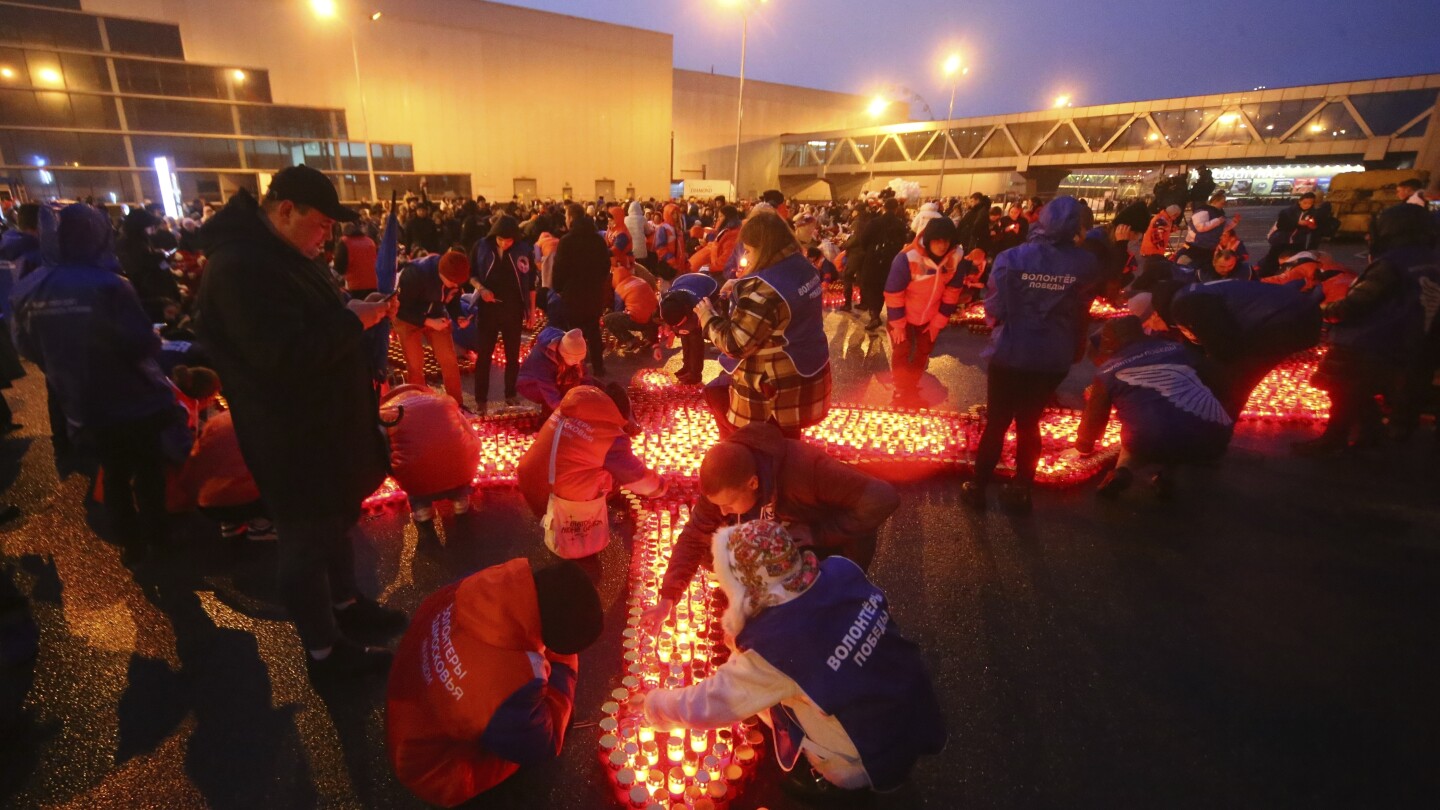TALLINN, Estonia (AP) — Flames were still leaping from the Moscow concert hall besieged by gunmen when Russian officials began suggesting who was really to blame. They presented no evidence, only aspersions and suspicion and counterfactual speculation, but in Russia’s eyes the culprit was clear: Ukraine.
The allegations that Ukraine, now in its third year of fighting after Russia invaded, was behind Friday’s attack that killed at least 137 people, were the first salvo in a disinformation war that has clouded the hearts and minds of people trying to come to grips with the shocking attack.
First came Dmitry Medvedev, the former Russian president who was once regarded as a mild reformer but who has become a vehement hawk since the start of the Ukraine war.
“Terrorists understand only retaliatory terror … if it is established that these are terrorists of the Kyiv regime, it is impossible to deal with them and their ideological inspirers differently,” he wrote on the Telegram message app about 90 minutes after first news came of the attack.
While not overtly accusing Ukraine, the strong implication was in line with Russia’s portrayal of Ukraine as a nest of vipers and suggested that Russia was prepared to step up its air assaults on Ukraine, which already had notably intensified in recent days.
Ukraine’s Foreign Ministry quickly grabbed the baton, not only rejecting Russia’s accusations but suggesting that the brutal shootings and fire may have been a false flag operation. A ministry statement Friday evening referenced the 1999 apartment bombings that many critics have suggested were done by Russian security agents to justify launching the second Chechnya war.
“There are no red lines for (President Vladmir) Putin’s dictatorship. It is ready to kill its own citizens for political purposes, just as it has killed thousands of Ukrainian civilians during the war against Ukraine as a result of missile attacks, artillery shelling and torture,” the ministry said at the time.
The claim of responsibility by a cell of the Islamic State did nothing to quiet the accusations, even though the group is a reliable villain to almost every country and despite Russia having claimed to have thwarted an IS-planned assault on a synagogue this month.
The United States’ confirmation of the IS claim only hardened Russia’s position.
“On what basis do officials in Washington draw any conclusions about anyone’s innocence in the midst of a tragedy? If the United States has or had reliable information in this regard, then it must be immediately transferred to the Russian side,” said Foreign Ministry spokeswoman Maria Zakharova.
“If there is no such data, then the White House has no right to issue indulgences to anyone,” she said.
All that was on Friday.
On Saturday, Russian officers chased down four suspects in the Bryansk region, about 350 kilometers (210 miles) south of Moscow. Bryansk is on the border with Ukraine and Russians were outraged.
“Now we know in which country these bloody bastards planned to hide from persecution – Ukraine,” Zakharova said.
In the afternoon, Putin, having waited about 19 hours to address the nation about the bloodshed, claimed without presenting evidence that the suspects were aiming to pass through a border “window” that had been arranged in advance.
How such passage could be arranged between warring countries was also unexplained. On Monday, Putin said the attackers were “radical Islamists,” but that it still needed to be explained why they tried to flee to Ukraine.
Over the weekend, digital bystanders chimed in on social media and messaging services. Some found it suspicious that the United States in early March had issued a warning saying it had intelligence indicating an imminent terrorist attack.
To some, that suggested that Washington didn’t give enough information to Russia about what it knew. To others, it indicated that Russian security services were too inept to fend off an attack even when warned.
Overtly bogus information also came in the attack’s wake. Russia’s state broadcaster NTV ran a video that appeared to show Ukraine’s top security official, Oleksiy Danilov, say, “Is it fun in Moscow today? … I would like to believe that we will arrange such fun for them more often.”
But it turned out to be an AI-generated deepfake, said digital sleuth Shayan Sardarizadeh of the BBC.
For some, implications and manipulation were too subtle and they chose all-out assertions.
“Ukraine did it. They will pay,” American commentator Jackson Hinkle, who recently interviewed Zakharova, wrote on X. Hinkle regularly spreads false information on social media. The Russia-Ukraine war has been one of his frequent targets, with Hinkle often posting content that furthers Russia’s disinformation narratives.

